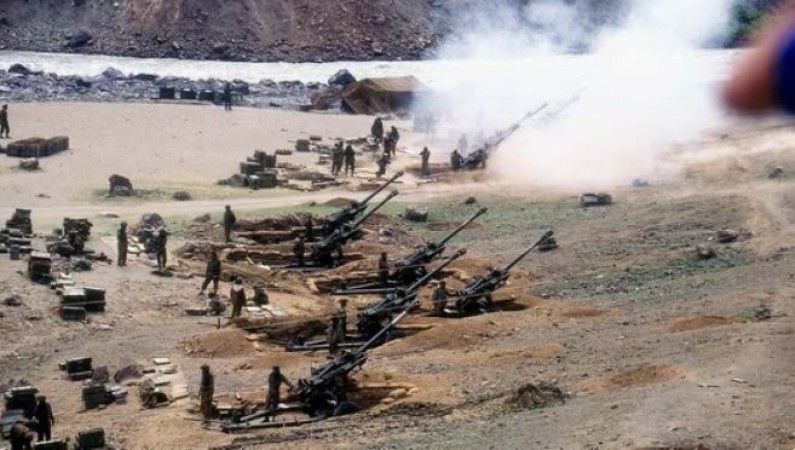
New Delhi: In late 1998, as the Indian Army vacated posts on the Kargil heights for the winter, Pakistani Army personnel began intruding into these vacated positions. The first signs of this intrusion were detected on May 3, 1999, when local nomads informed Indian Army units about the presence of Pakistani troops in the higher reaches of the Kargil area. Initially taken aback, Indian Army formations sent discreet patrols to assess the situation. As days passed, it became clear that Pakistani forces had established positions along a wide front along the Line of Control (LoC).
At the time, the 15 Corps, also known as the Chinar Corps, was headquartered in Srinagar and commanded by Lieutenant General Kishan Pal. Unfortunately, Lt Gen Pal initially downplayed the severity of the situation, describing the Pakistani presence as a “local” skirmish. This misjudgment was grossly misleading and did not reflect the harsh realities on the ground. Lt Gen Pal ignored early warnings about the Pakistani intrusions, provided incorrect assessments to Northern Command and Army headquarters in Delhi, and exhibited flawed leadership. His actions and omissions were later criticized, with many reports detailing his failure to act appropriately.
Years after the Kargil War, the Armed Forces Tribunal (AFT) held Lt Gen Pal accountable for “doctoring battle performance and after-action reports” to undermine the achievements of the Batalik-based 70 Brigade, led by Brigadier Devinder Singh. Brigadier Singh had earlier predicted the scenario that unfolded in Kargil, but his warnings were dismissed as alarmist. Ironically, Lt Gen Pal received a gallantry award for his role in the war, while Brigadier Singh was denied promotion to Major General.
Brigadier Singh, however, fought back against this injustice. After his retirement, he challenged the sidelining he faced, and the case continued for several years. Justice A K Mathur, who led the AFT, ordered that Lt Gen Pal’s biased assessments regarding Brigadier Singh be removed from official records. Brigadier Singh expressed his sense of vindication following the AFT verdict, feeling that his honor was restored. Although he would not be promoted to Major General, the acknowledgment of his contributions was a significant victory for him and the brigade he commanded.
The Kargil War also highlighted the bravery and determination of young soldiers and officers who achieved remarkable victories. Grenadier Yoginder Singh, at just 19, was awarded the Param Vir Chakra (PVC) for his extraordinary bravery. Despite sustaining multiple injuries and witnessing the death of many of his comrades, Yoginder Singh's heroism during the conflict was celebrated. The Battle of Tololing, won on June 13, and the capture of key posts like Point 5060 and Point 5100 near Tiger Hill on June 29, were pivotal moments in the war.
As June progressed, Indian forces began to gain the upper hand. By mid-June, the tide had decisively turned against the entrenched Pakistani troops. Indian field commanders and soldiers, driven by their determination and valor, were poised to vanquish the enemy and achieve a historic victory.
Virat Kohli Bids Farewell to T20Is with a Triumph: India Clinches Second ICC T20 World Cup Title
Prime Minister Modi's 'Mann Ki Baat' Returns After Election Hiatus
CBI Interrogates Beur Jail Inmates in NEET-UG Paper Leak Case, Identifies Key Suspects